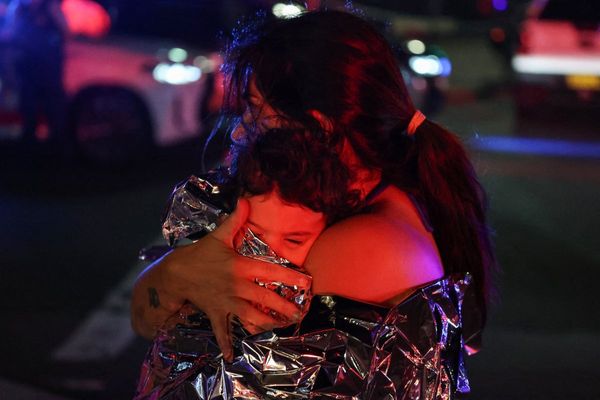
After giving birth, Vanessa Chisakula started writing poetry as a way of processing the changes and struggles she was experiencing as a new mother. “I was in my early 20s. I had just become a mum and didn’t understand it,” she says.
“I had all these questions,” she says. “What is a woman? Is this it? I didn’t know what I was supposed to be doing.”
With poetry, she adds, “you can say a lot of things and it’s so therapeutic”.
Just writing poems was not enough, however. Chisakula wanted to share her stories. She was inspired to do spoken-word poetry – a genre written to be read out loud and performed – when she heard I Will Wait For You by Janette…ikz, an American spoken-word poet.
Now, she is spearheading efforts to expand the spoken-word scene in Zambia, where she is from. In 2017, she co-founded Word Smash Poetry, a movement for young creative activists across southern Africa. In her own award-winning work, she uses poetry as a tool for activism, focusing on issues including women’s rights, youth, African identity and mental health.
“I believe in the beautiful persuasion that art brings to the table,” she says. “Art is a form of protest that leaves no blood. It can be peacefully done but a strong message can be communicated artistically.”
Chisakula grew up in Lusaka, the capital of Zambia, where she still lives with her two children. Her interest in writing started when she watched the film Titanic as a child. Her dream was to produce screenplays and she had never considered poetry until a friend suggested she give it a go. She has not looked back since.
“Poetry is just so beautiful,” she says. “It can be a short but inspiring piece; it leaves you thinking and wanting more. I didn’t want to stop.”
One of her first poems, Her Place, was an examination of womanhood. She explains: “I wanted to tell my truth. What exactly is womanhood? How am I defining it? What are the things that are not working around it?”
In it, she says:
“Her place was not of a sex symbol, bed-warmer, a stress reliever or a horny man’s entertainer.
And her body was not a museum of statues for show because everything she carried in her body were interconnected parts and inside of her there lived a heart.
But they could not realise that and they asked about her place.
Her place is on top.”
In 2020, Chisakula released a short collection of poems, Africana, written to embrace her identity as a black African.
“I always wanted to relocate to the US when I was young,” she says. “I thought the American dream was the dream. There’s no African dream.”
She no longer believes this; now she wants to celebrate her home continent.
When she was younger, she was made to feel inferior when peers called her skin “too dark”; at college she was called “blackie”. She blames colonialism for engendering an inferiority complex among black Africans in Africa.
“Some Africans haven’t realised we’re dealing with it,” she says. “It’s so hard to accept your own self is good enough if somebody has convinced you that it’s not.”
Over the past five years, Chisakula has seen the spoken-word scene grow in popularity in her home country. It is already well established across southern Africa, she says. From September to December there are poetry festivals “nonstop” across countries including South Africa, Botswana, Zimbabwe and Zambia. In 2022, the winner of the World Poetry Slam, held in Brussels, was Xabiso Vili from South Africa. This year, the competition will be held in Togo.
When she started working with the Word Smash Poetry movement, she was aware of about five poetry organisations.
“There’s a poet on every corner now,” she says. “Back then, it was a bit uncommon; now people are doing it on a larger scale. I see poets at almost every event.”
Male poets still outnumber female poets, however. Chisakula believes women struggle to get a foothold in the arts in Zambia. She says: “Women and girls still shy away from these spaces, they don’t participate as easily.”
Last month, the Word Smash Poetry movement hosted its second all-female national poetry slam in Lusaka, which took place during the 16 Days of Activism Against Gender-based Violence, an annual international campaign that kicks off in late November.
There were 12 performers in total; four had returned after performing last year and there were eight new faces, which was a huge achievement, according to Chisakula. The quality of the performances during the slam was also impressive.
“The girls were able to express themselves,” she says. “The stories were well put; they were loud; they were clear. They had solutions. They were captivating. I’m glad we managed to put that space there to allow a celebration of our stories.”







